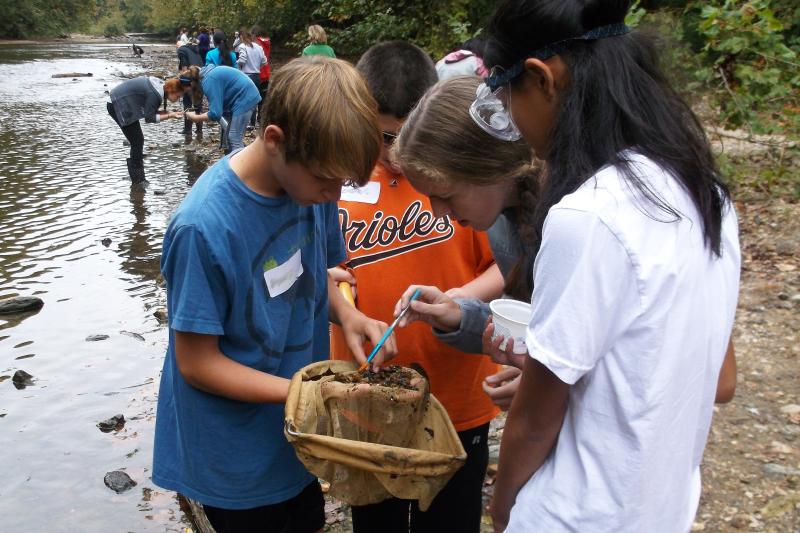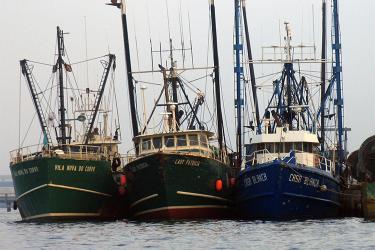NOAA has recommended twelve new projects to receive a combined total of roughly $1.48 million in FY21 funding as part of the Chesapeake Bay-Watershed Education and Training (B-WET) program. The new projects are based in Pennsylvania, Maryland, Virginia, Delaware, and Washington, D.C. Recommended Chesapeake B-WET FY21 funding, including support for projects continuing from previous years, totals more than $2.6 million.
These grants will reach new parts of the Chesapeake watershed to help them build their ability to deliver outstanding environmental education and to reach students across school districts. In addition, this year’s Notice of Funding Opportunity encouraged applicants to partner with community-based organizations that are based in or work with disenfranchised communities.
In addition to the new grants, $1.15 million will support nine continuing projects in Virginia, Maryland, and Pennsylvania, enabling nonprofit organizations and universities to partner with school districts to implement meaningful watershed educational experiences—MWEEs—that will reach more than 23,000 students. NOAA is working with grantees and partners to explore creative and innovative ways to implement environmental education during the next year and beyond as educators work in traditional, hybrid, and virtual settings.
The new FY21 projects are:
- Chesapeake Audubon Society will receive $79,980 for their project “Chesapeake Linked: People, Skies, Water & Place (LINKED)” to engage teachers and students in Dorchester County, Maryland, through investigative outdoor experiences, student-driven stewardship action projects, and synthesis and conclusions to find solutions at the community level to address issues facing the Bay and Atlantic Flyway.
- The City of Richmond (Virginia) will receive $149,437 for their project “The Richmond Environment: Students as Teachers in their Watershed,” where key partners will create a district-wide Environmental Literacy Plan rooted in environmental justice.
- Friends of the Rappahannock will receive $140,802 for their “Upper Rappahannock MWEE Program,” through which they will implement sustainable MWEE programs in two school districts in the Rappahannock River Watershed (Fauquier County Public Schools and Culpeper County Public Schools).
- The Howard County Conservancy will receive $128,155 for their program “Climate kNOWledge: Student Research & Action to Reduce the Impacts of the Climate Emergency,” which will engage every sixth grade HCPSS student and teacher in robust hands-on climate science.
- The James River Association will receive $150,000 for their “It’s All Connected: Together Three School Districts Investigate the James River” project, which will connect middle schools in Amherst County, Hopewell City, and Surry County Public Schools through systemic MWEEs designed to engage every seventh grade life science teacher and student within each of the school districts.
- The Lancaster-Lebanon IU13 school district will receive $191,066 for their “Expanding Capacity for Environmental Literacy at IU13 (ExCEL@IU13)” project. Through this effort, Lancaster-Lebanon IU13 will develop a K-12 Environmental Literacy Plan for IU13’s center-based emotional support classrooms.
- Let’s Go 1-2-3 will receive $30,000 for their “Let’s Go 1-2-3 and Community Partnerships to Expand MWEE Education for Sixth Graders and the City of Lancaster” effort, which will build on the School District of Lancaster’s current MWEE programming for sixth-grade middle school students and teachers by enhancing the local relevance and ability for the full experience to occur within the schoolyard or surrounding community.
- Living Classrooms National Capital Region will receive $149,686 for their “Anacostia Watershed High School MWEE” project, which will develop a high school MWEE for ninth-grade students in ten Washington, D.C., public high schools located within the Anacostia watershed for a total reach of 1,900 students and 20 teachers.
- The Mariners’ Museum will receive $139,749 for “The Mariners’ Environmental Co-op,” which will bring together expertise from Christopher Newport University, the James River Association, NOAA Monitor Sanctuary and The Center for Educational Partnerships, to implement an initiative combining critical classroom skills, alongside engaging outdoor experiences, with the goal of creating sustainable and curricularly integrated MWEEs, for ninth-grade students in Newport News Public Schools.
- Millersville University and Virginia Wesleyan University will receive a total of $125,178 for their “Shared Waters: An Upstream-Downstream Collaborative” project, through which they will partner with Penn Manor School District and Norfolk Collegiate School, respectively, to develop and implement systemic meaningful watershed educational experiences in elementary schools.
- Prince William County Public Schools will receive $122,784 for their project, “A Community-Connected and Curriculum-Embedded Environmental Literacy Program,” through which they will create a comprehensive environmental literacy plan that will integrate in-person and virtual environment, climate, and energy education, as well as civic engagement and stewardship of natural resources.
- The University of Delaware will receive $70,693 for their “Building District Capacity for Environmental Literacy and MWEEs in Delaware” effort, which will strengthen school-district capacity to integrate environmental literacy and meaningful watershed educational experiences into learning for Delaware students.
Whether working with students directly or providing professional development to educators, B-WET grants empower students to investigate local and global environmental issues that affect their lives, choices, and communities. Students identify actions to address these issues, helping them understand, protect, and restore their local watershed.



